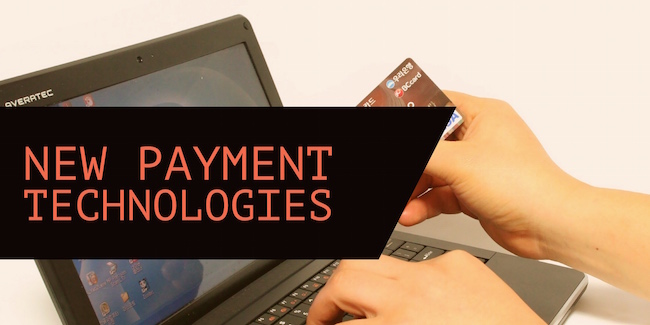I was strolling through downtown Palo Alto, CA looking for a place to eat when I came across a Sweetgreen. I’ve never eaten at one so I decided to give it a shot. When it was time for payment, I pulled out a $20 bill to pay for my meal when the cashier said, “Sorry we don’t accept cash”.
It’s no secret that we’re moving away from paper transactions and moving towards a completely digital economy. With new payment technologies emerging left and right, it’s important that you stay up to date. Here are some of the new innovations in payment technology today, and how they’re shaping the way we make payments.
Table of Contents
ToggleEMV/Smart Chip Cards
According to a poll, about 70% of customers now have chip cards. While they aren’t the most popular, they are becoming necessary. On October 1, 2015 the EMV Liability Shift went into effect heavily influencing merchants and customers to acquire EMV systems. The main reason for this shift has to do with security and fraud prevention. The smart chip encrypts your personal information making it exponentially more secure than a magstripe.
There’s no law that requires merchants to acquire chip readers, however it’s probably in their best interest. If you don’t offer the chip readers, your business will be liable to certain types of fraud and penalties. If you haven’t yet, it’s worth investing in an EMV compatible point of sale system.
Mobile Wallets and Contactless Payments
There’s no need to carry around cash or payment cards when you have a digital wallet. A digital wallet serves as an eBank where you can store payment information securely and in one place. You can store bank accounts, link credit cards, and load funds onto these mobile wallets and make payments seamlessly on the go. Here are some mobile wallets that are gaining popularity.
•Apple Pay: Apple Pay allows you to make contactless payments from your iPhone at various merchants.
•Google Wallet: Google Wallet allows you to send, receive, and make payments from your Android device.
•Venmo: Venmo allows you easily send, receive, and split payments from your mobile device through a linked bank account.
The millennial demographic is especially becoming accustomed to mobile wallets. A survey done by Accenture discovered that 23% of millennials use contactless payments at least once a week. This may seem small, but keep in mind these wallets are relatively new and have limited exposure at the moment.
Digital wallet and contactless transactions are as secure as an EMV chip and way more convenient. When you’re able to pay with your smartphone, there’s essentially no need to carry around your wallet. In addition, all of your receipts will be digital. Imagine if every storefront offered contactless payments? It would make for an extremely seamless and environmentally friendly payment process.
Online Billing
If you’re still sending paper checks and invoices it’s time to make the switch. There are plenty of online invoicing platforms that allow you to send, receive, and store your invoices all in one location. Most of these services are cloud-based which allow you to access your invoices from any device or location. You’ll save time, money, and tons of paper by switching to online invoices. Not to mention you’ll get paid much quicker so you can keep your cash flow in the green.
Paper checks are also a thing of the past. New payment technology allows for business practices like payroll to be done entirely online. If you use ACH transfers or an eCheck to pay employees, you’ll save yourself from an accounting nightmare.
Blockchain
The Blockchain is a publicly distributed database that maintains an extremely secure list of records (or blocks) that are timestamped and linked to a previous block. This Blockchain network is decentralized which means it is spread across a network, this means there are no centralized points in which hackers can target. In addition to being decentralized the blockchain keeps data secure through encryption, which is far more secure than our standard “username/password” system.
The Blockchain underlies Bitcoin, and allows users to connect to the network as well as send and verify transactions from it. Bitcoin was first introduced in 2008 and is often times classified as the first cryptocurrency, although there were a few prior examples. Today, Bitcoin is the most popular digital currency with a market cap of more than $10 Billion, the closest competitor is Ethereum at a little over $1 Billion.
Blockchain technology is relatively new with a very exciting road-map. Since the digital currency space has a relatively low market capitalization at the moment, this isn’t a necessary payment technology to implement into your business. However, it would be a good idea to stay up to date because new applications for the technology are being implemented all the time.
The payment space is constantly evolving. Regardless if you’re a merchant, it’s definitely in your best interest to stay up to date with payment technology.















